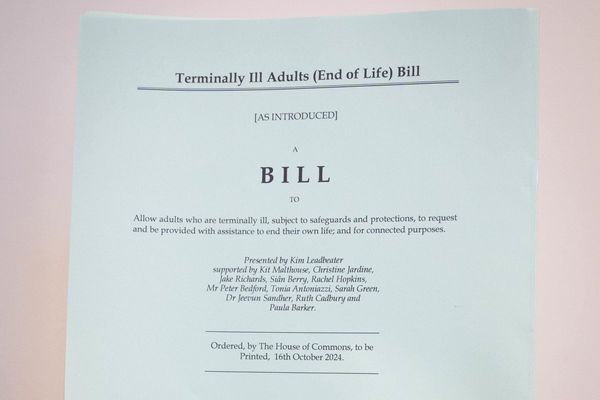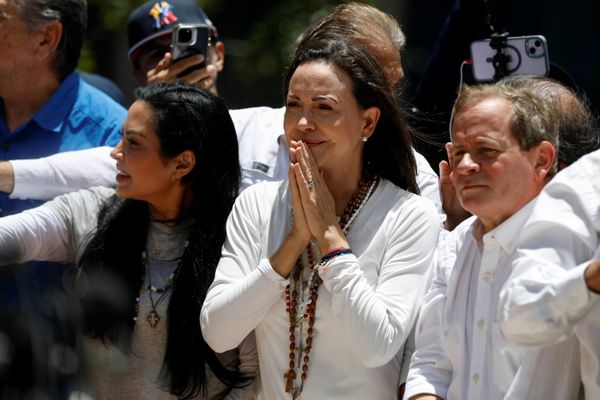U.S. stocks closed firmly higher Wednesday, powered by a spate of better-than-expected big tech earnings after the close of trading yesterday that helped boost sentiment ahead of a crucial Fed rate decision later in the session.
Tech stocks had their biggest one-day gain, in fact, in more than two years as Treasury bond yields slumped in the wake of the Fed's dovish rate decision.
The Fed delivered its second consecutive 75 basis point rate hike Wednesday afternoon, taking the benchmark Fed Funds rate to a range of between 2.25% and 2.5%, while acknowledging that some conditions in the broader economy had softened.
Bets on a 75 basis point hike had been largely priced-in for today's meeting, capping gains for U.S. Treasury bonds and holding the dollar near to the highest levels against its global peers in more than two decades.
That expectation, however, comes against a very different economic backdrop than when the Fed delivered its previous 75 basis point hike in June. That set the stage for Chairman Jerome Powell to hint towards smaller moves in the coming months, or indeed a pause in tightening altogether, should the economy tip deeper into recession.
"The Fed will wait until inflation is unmistakably cooling before they ease up on rate hikes (and) there is gathering evidence that inflation is peaking," said Bill Adams, chief economist for Comerica Bank in Dallas. "Financial markets are pricing in the same peak of the federal funds rate, but one which would quickly give way to rate cuts next spring as inflation slows and the economy weakens."
The persistent dollar strength, meanwhile, has added a headwind to U.S. corporate earnings as companies pay more to repatriate their overseas sales, and profits, into greenbacks. And with more Fed hikes on tap, including a likely 75 basis point move in September, many companies have told investors to expect dollar-related pressures for much of the second half of the year.
Last night's earnings slate, however, looks to have eased at least some of those concerns, with Microsoft (MSFT) issuing a bullish near-term outlook despite the currency headwinds and Google parent Alphabet (GOOGL) defying predictions of an ad market meltdown. Visa (V), as well, topped Street forecasts and indicated it isn't seeing any signs of a slowdown in consumer spending.
Bristol Myers (BMY), T-Mobile US T(TMUS), Boeing (BA) and Kraft Heinz (KHC) are scheduled to report June quarter earnings prior to the start of trading, with Meta Platforms (META), Qualcomm (QCOM) and Ford (F) expected after the closing bell.
Collective S&P 500 earnings for the second-quarter are forecast to grow by around 6.2% from last year, to a share-weighted $467.2 billion, but that pace is largely the result of record profits for the energy sector. Stripping away that contribution leaves earning down 3.2% from last year, according to Refinitiv data.
A solid set of European earnings this morning, including a 51% leap in profits for German lender Deutsche Bank, helped the region-side Stoxx 600 post modest early gains in Frankfurt, offsetting reports of reduced gas flows through the Nord Stream 1 pipeline controlled by Russia-owned energy giant Gazprom.
In the U.S, benchmark 2-year note yields fell to 2.986% in the wake of today's Fed decision at 2:00 pm Eastern time, while 10-year notes were pegged at 2.748%.
On Wall Street, the S&P 500 closed 102 points higher following the Fed decision, while the Dow Jones Industrial Average gained 434 points. The tech-focused Nasdaq gained 470 points as Treasury bond yields moved lower, the biggest one-day jump since April of 2020.
Alphabet shares jumped 3.75% in pre-market trading after the search and ad sales giant posted modestly softer-than-expected second quarter revenues, defying concerns of the ad-spending meltdown forecast last week by messaging app maker Snap Inc. SNAP.
Microsoft shares were up 3.4% after the tech and cloud computing giant issued a robust near-term profit forecast that offset a dollar-weakened set of fourth quarter earnings.
Boeing (BA) gained 2.8% despite a wider-than-expected second quarter loss as it repeated its forecast to turn cash-flow positive thanks in part to improving supply chains and a bulging $372 billion aircraft order backlog.
Visa shares, meanwhile, edged 0.2% lower after the credit card issuer posted stronger-than-expected third quarter earnings as cross-border transactions topped pre-pandemic levels for the first time in more than two years.
Bristol Myers Squibb (BMY) was also in the red, falling 2% despite posting stronger-than-expected second quarter earnings and repeating its full-year profit forecast, powered once again by solid sales gains for its cancer and blood clot treatments.







